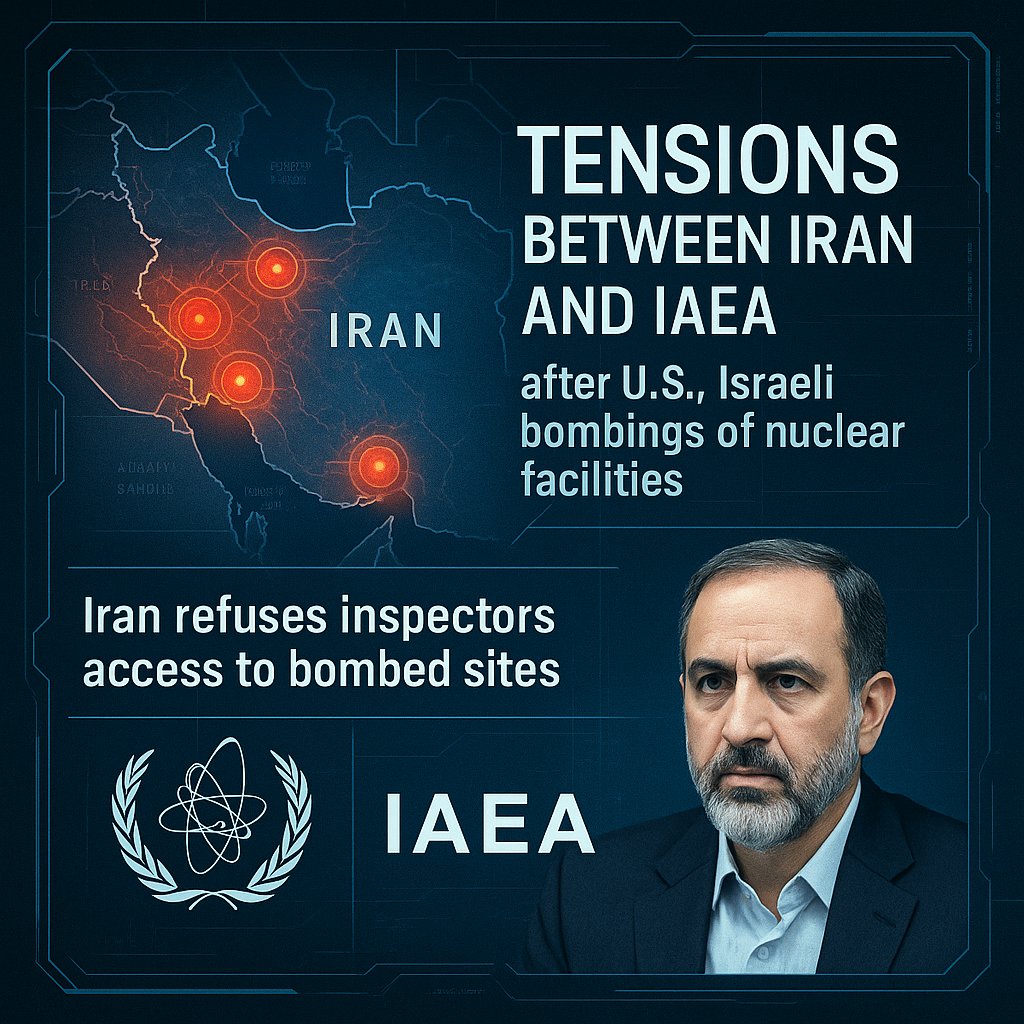Image created by AI
Escalating Conflict: Iran Refuses IAEA Inspections Post US-Israel Bombings
Recent developments have escalated tensions between Iran and the International Atomic Energy Agency (IAEA), following a devastating series of bombings on Iran's nuclear facilities by the United States and Israel. Iran's refusal to allow IAEA inspectors access to the bombed sites further complicates the already strained relations. Esmail Baghaei, a spokesperson for Iran's foreign ministry, expressed concerns about the safety of IAEA inspectors due to the recent attacks, questioning the feasibility of ensuring their security under current conditions.
This refusal came shortly after harsh remarks from U.S. President Donald Trump, suggesting the Iranian Supreme Leader should be appreciative he was not targeted for assassination. These comments have been harshly criticized by Baghaei, who described them as "worthless and insulting," provoking widespread anger and exacerbating tensions within the region.
The conflict began intensifying when the IAEA's board declared Iran in breach of its Nuclear Non-Proliferation Treaty obligations, which immediately preceded the Israeli offensive. Over a span of just 12 days, Israel targeted nuclear facilities, military infrastructures, and personnel, leading to significant casualties and damage. According to reports by Human Rights Activists based in Washington, over 1,000 fatalities were recorded, including at least 417 civilians. In retaliation, Iran launched missile attacks on Israeli military bases and cities, killing 28 individuals.
Further complicating matters, the US intervened with targeted bombings on three of Iran's nuclear sites using advanced bunker busters. These bombings, aimed to significantly weaken Iran's nuclear capabilities, were met with Iranian missile strikes on a US base in Qatar, though these attacks resulted in no reported casualties.
Iran now threatens to cease all cooperation with the IAEA, accusing it of justifying Israeli bombing campaigns while concurrently grappling with the aftermath of these severe bombings. The situation remains volatile, with international bodies and neighboring countries concerned about the potential for broader conflict in the region.
In sum, the unfolding situation poses a severe challenge to international peace efforts and the regulatory framework surrounding nuclear proliferation. As both diplomatic and military tensions continue to escalate, the global community watches closely, hoping for a resolution that ensures both regional stability and the non-proliferation of nuclear weapons.










